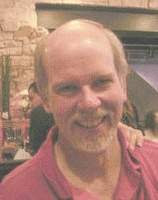"It's What the SEC Does"
Mr. Markopolos (of whom I think highly) pointed out that the SEC investigators are mostly lawyers, and suggested that their lack of proficiency at math was a fundamental cause for the Commission's investigative failures.
With all due respect, that's a bunch of baloney. My response (full posting here):
The SEC’s failure to investigate financial fraud is much more fundamental than just a problem of their investigators’ proficiency at math. The fact of the matter is that the SEC itself is intimidated by high-profile investigative targets like Mr. Madoff, so it deliberately avoids going after such targets. That was never made more clear than by the sad case of SEC investigator Gary Aguirre, who was fired by his management for pursuing a case involving John Mack, who recently resigned as CEO of Morgan Stanley (but remains as Chairman of the Board). Mack had likely provided inside information to the CEO of the hedge fund Pequot Capital, which in turn made millions from their timely investment. Aguirre wanted to interview Mack under oath, but his managers would have none of it. Aguirre’s story was on the front page of the NY Times back on June 23, 2006. A Senate investigative panel and the SEC’s IG ultimately vindicated Aguirre (but much too late, of course).
My own experience in trying to get the SEC to investigate malfeasance by a recent Cabinet Secretary parallels that of Mr. Markopolos. (This Cabinet member received up to $1 million in extra stock options from a major technology company under the SEC’s radar, and for years afterward pushed federal policies and programs designed to benefit the company. Both he and the company almost certainly violated federal securities and ethics laws.) Even after sending a dozen tips to the SEC’s Enforcement tip line during Chairman Cox’ regime, no one every followed up. After Ms. Schapiro assumed the top SEC post I wrote to her and her top enforcement counsel (Stephen Cohen), and after reviewing the evidence I provided both said that they would look into this matter. Many months later and nothing. Apparently they’ve swept this matter under the rug, too. It’s what the SEC does.
Just so there's no confusion, the "recent Cabinet Secretary" I referred to was Norman Mineta, and my forthcoming book The 'Smart Road' Scam goes into great detail about Mr. Mineta's ethical and legal transgressions.

